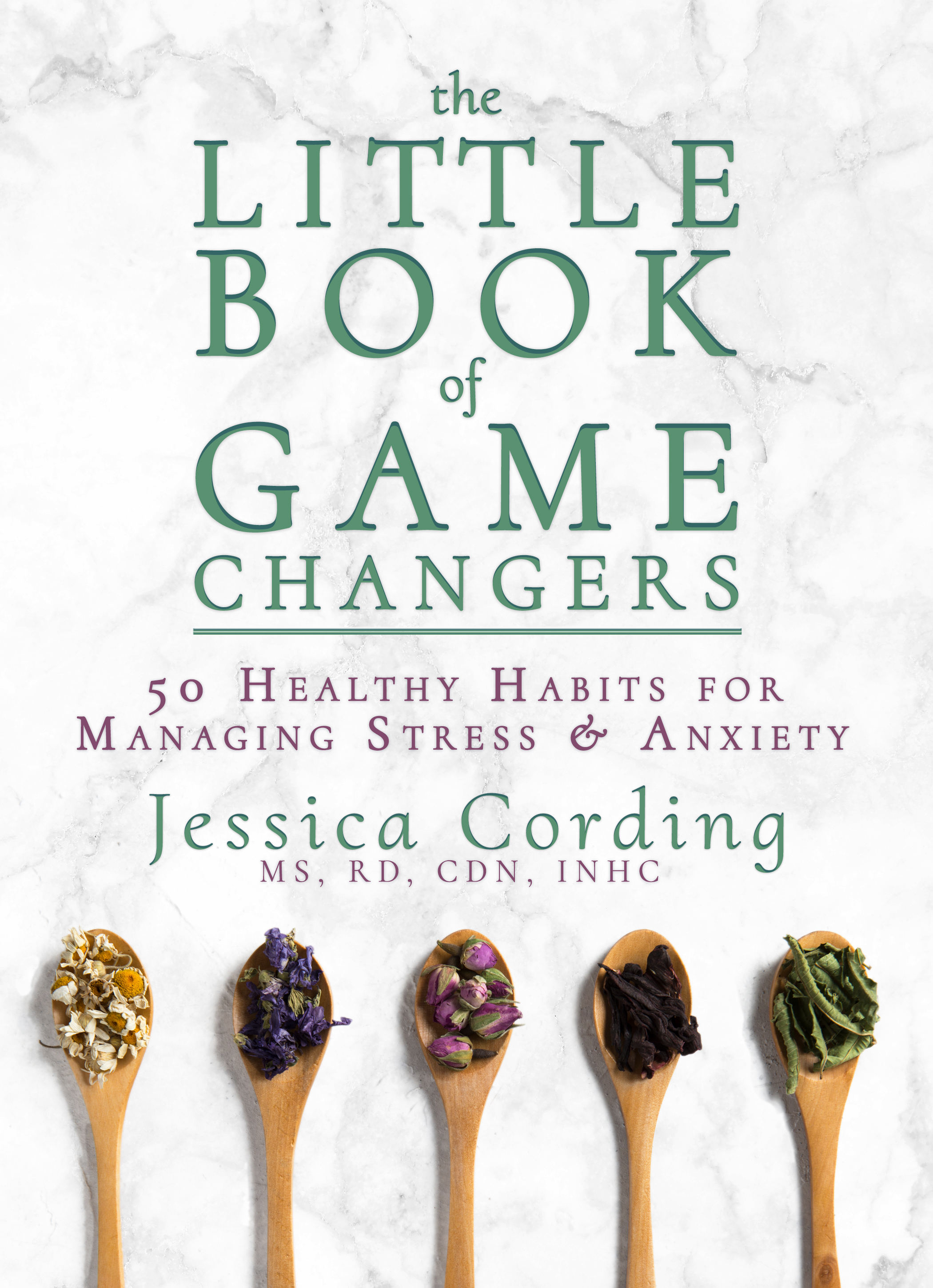Sometimes the concept of routine has a negative connotation because it gets lumped in with “the daily grind” or getting stuck in a rut. Or maybe you’ve heard the term “creature of habit” used to refer to someone who’s set in their ways. The word “routine” itself makes some people cringe because it brings to mind visions of a 5 a.m. alarm and a rain-or-shine ten-mile run, followed by a chalky-tasting green smoothie choked down on their commute to work. Of course, that very same image may make someone else jump for joy. Bless them.
However, establishing a routine that helps us take care of those self-care basics that support our wellness is key to staying on track as we work toward goals, and helps us stay grounded in our day-to-day life. Having morning and evening routines, for example, may help provide structure for our day.
The good news is that routines are entirely customizable—and they should be. I see so many people beat themselves up trying to get into a groove with a set of activities that run counter to their natural rhythms and energy: All you night owls who wish you could be morning people, I’m talking to you.
When we ignore our true nature, we’re setting ourselves up for failure and frustration, which in turn causes us to doubt our ability to make lasting changes. Yes, you can tweak and adjust, but if you notice that something feels impossible to put into practice or that it makes you absolutely miserable and never seems to get easier, your body and brain may be sending you a message that whatever you’re trying to do just isn’t right for you—and that’s okay.
Here are some tips for getting into a routine. Consider these a jumping-off point to give you some inspiration. And, by the way, it’s okay for it to take some time to establish a rhythm. It’s also okay to adjust your routines over time to accommodate changes in your life. If, after a certain point, something that once worked for you no longer does, give yourself permission to let it go.
Morning Routines
• Start with a consistent wake-up time. This helps your body get into a regular sleep cycle. Initially this might feel weird, but over time, you’ll likely notice that you wake up feeling more energized. You don’t have to get out of bed at the exact same time every single day, but keeping it within that same one- or two-hour window (yes, even on weekends) will help train your body to know when it’s time to rest and to wake up. If you need to adjust to an earlier wake-up time than you’re used to, give yourself a couple weeks, getting up fifteen minutes earlier every few days rather than just suddenly trying to go from waking at, say, 11 a.m. one day to 7 a.m. the next.
• Hydrate. Our cells need water to do all the work they do taking care of us. We wake up dehydrated, so drinking a glass of water first thing can help us perk up like a flower and get ready for the day. It’s also great for our skin and helps stimulate digestion to keep things moving regularly. I’m a big fan of lemon water in the morning.
• Move. There’s no rule that says you have to exercise in the morning—exercise in general has been associated with improved physical and mental health—but moving in the morning, whether a formal workout, a stretch, or a walk can help get the blood flowing and get your energy up.
• Clear your mind. Whether it’s meditation, journaling, writing down your dreams, taking a walk, or enjoying a moment to acknowledge your feelings, a little mental decluttering can go a long way. Think about how much easier it is to get ready when you clear out all the excess stuff from your closet and can actually find the stuff you need. If you’re not sure which one of these to start with, I’d recommend journaling. Give yourself five minutes and start by filling in the blank:
Right now, I am thinking _______________________.
• Fuel up. Tune into what foods and beverages make you feel energized and stable in the morning (for me, that definitely includes coffee!). Make it convenient to include those in your day (i.e., brewing coffee while you get ready in the morning). Stock your home and workspace with your essentials and familiarize yourself with where you can get your on-the-go must-haves.
Bedtime Routines
Having a bedtime routine helps us get the quality rest we need to function. Here are some sleep basics to try:
• Stick to a regular bedtime. I can’t stress this one enough. It trains your brain to recognize when it’s time to fall asleep. Again, it can be within an hour or two of the desired time.
• Give yourself time to “power down.” This one has become something of a cliché, but for good reason. Giving your body and brain some time to shift from “awake-and-doing-stuff” mode to “bedtime” mode can help you drift off with less drama.
• Pay attention to your sleep environment. Make sure the room is cool and dark. Neutralizing any distracting sounds with a white noise machine can help you. Investing in sheets that feel good and choosing colors that soothe you can also go a long way toward creating a space that feels like a calming oasis, even if you live in a studio apartment.
• Try meditation. If you’re not into morning medita-tions, an evening meditation can be a great way to get into a different mind-set and dial down any loud, disruptive thoughts from the day. Don’t think you know how to meditate? Try an app like Headspace, Simple Habit, or Insight Timer, just to name a few.
• When you can’t sleep, be gentle with yourself. Rather than tossing and turning and staring at the clock with tears of rage in your eyes (hey, I’ve been there too), get out of bed and do something mellow. Read, watch TV, knit, clean a drawer—whatever occupies you and redirects your thoughts away from the “why-am-I-up?” loop.
• Choose sleep aids wisely. If you have serious trouble with insomnia, your health care provider can be a good resource for medical and nonmedical approaches and can discuss their validity and safety as well as how to use different ones at different times. I generally recommend trying natural approaches first before turning to prescription sleep medications. For example, I often start by recommending aromatherapy to my clients (more on that later) and discussing overall sleep hygiene with them, such as making sure their sleeping area is cool, quiet, and dark. Melatonin supplements work by increasing levels of melatonin, a hormone that regulates the circadian rhythm (translation: helps signal to your body that it’s time to go to sleep). They have minimal side effects and tend not to be habit-forming. However, they won’t usually knock you out and aren’t meant to be an everyday thing, but when you’re traveling across time zones or having trouble getting into a consistent sleep cycle, it can be helpful in regulating your circadian rhythm so that after a week or so, you no longer need the supplement. CBD (the chemical in cannabis that doesn’t get you high) is also being looked at for its potential effect on sleep. While prescription and over-the-counter medications are available, familiarize yourself with the risks and have a conversation with your doctor about whether they’re safe for you.
Rut vs. Routine
All that said, sometimes it’s possible to become too set in our routine and to get to a point where what was once helpful actually becomes harmful.
Here are a few signs that you’re being too rigid:
• You cancel plans with friends or avoid situations you would normally enjoy because you don’t want it to interfere with your routine.
• You get mad at or “punish” yourself for skipping parts of your routine.
• When unexpected things come up and disrupt your routine, you find it incredibly difficult to cope.
Bottom Line
Embracing a morning and bedtime routine can help you stay grounded and on track. Give it a shot. Take into account your schedule along with your natural energy ebbs and flows. Sure, there may be some trial and error, but once you have a few consistent habits in place (seriously, it doesn’t have to be elaborate), you’ll likely notice a big difference in how prepared you feel at the beginning of each day and how much easier it is to unplug at the end.

Follow us here and subscribe here for all the latest news on how you can keep Thriving.
Stay up to date or catch-up on all our podcasts with Arianna Huffington here.


